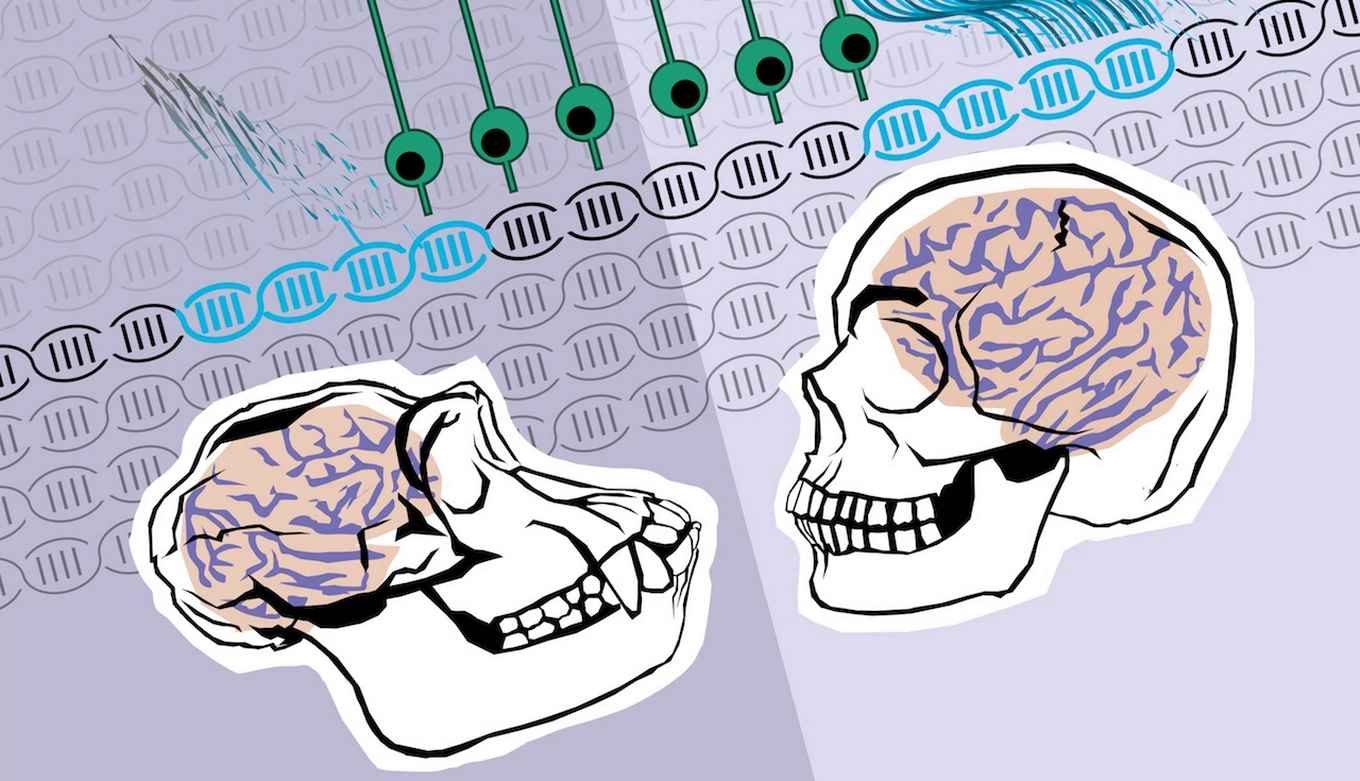Researchers discover human-specific genes possibly responsible for larger brain
NOTCH2NL found to play important role in cortex development
31 May 2018

According to the researchers, the genes, called NOTCH2NL, seem to delay the differentiation of cortical stem cells into neurons, resulting in the production of more neurons across the course of development. The genes are found exclusively in humans, are heavily expressed in neural stem cells of the human cerebral cortex and are located on a part of the genome implicated in neurodevelopmental disorders.
Unique to humans
The researchers discovered NOTCH2NL while comparing genes involved in brain development in humans and macaque monkeys. ‘During our analysis of stem cell-derived models, we realised that we could detect NOTCH2NL only in human cells but not in those of macaques’, says Jacobs, who is assistant professor specialising in Evolutionary Neurogenomics and heads the UvA’s Jacobs Lab. ‘We also couldn’t find it in orangutans and found only truncated, inactive versions in our closest relatives, gorillas and chimpanzees.’
According to Jacobs and his fellow authors, the evolutionary history of NOTCH2NL genes reveals that a non-functional version of NOTCH2NL emerged as a partial duplication of an essential neurodevelopmental gene known as NOTCH2. Then, NOTCH2NL became functional and duplicated twice more only in humans about 3 to 4 million years ago, around the same time that the human brains began to expand.
Slowing down the pace of generating neurons
To understand what NOTCH2NL does in the brain, the researchers deleted the genes from human stem cells. These were then used to grow patches of cortex called organoids. ‘Losing NOTCH2NL leads to premature differentiation of cortical stem cells into neurons, but at the same time depletes the crucial stem cell pool’, says Gerrald Lodewijk, a PhD student in Jacobs’s lab. ‘Our data suggests NOTCH2NL’s role is to delay neuronal differentiation of cortical stem cells, so that more neurons can be generated eventually.’
NOTCH2NL’s location on the genome provides further support for its role in human brain size. The researchers showed that the two highest expressed NOTCH2NL genes are in a highly instable part of our genome that is associated with brain-size defects and multiple other neurodevelopmental disorders.
Evolutionary trade-off
NOTCH2NL genes seem to be central to an evolutionary trade-off between larger brains and genomic instability of the locus where they were created. In addition to the disease association, there is plenty of healthy variation too, resulting in different combinations of NOTCH2NL variants in individuals’ genomes, Jacobs explains. ‘We are only beginning to understand what different dosages of NOTCH2NL might do to our brains, and within certain boundaries this does not seem to be only bad. The optimal dosage of NOTCH2NL may as yet be unsettled in our species and perhaps subject to ongoing evolution as part of normal human variation.’
Luck or chance
The Notch signaling pathway is highly conserved between species, present from fruit flies to humans. This makes it even more special that NOTCH2NL evolved in humans at all. ‘The locus was building up instability throughout evolution, so the repair of these non-functional NOTCH2NL genes could have happened at any time’, says Jacobs. ‘It could have happened earlier in the primate lineage and had a huge effect on brain development. But it didn’t. There’s a matter of luck or chance involved that just remains fascinating to me. How you go from something that is quite neutral in our genome to something that has such an important function and is used by our species to select for such important properties?’
Publication details
Fiddes et al., ‘Human-Specific NOTCH2NL Genes Affect Notch Signaling and Cortical Neurogenesis’ in Cell, 31 May 2018. Doi: 10.1016/j.cell.2018.03.051